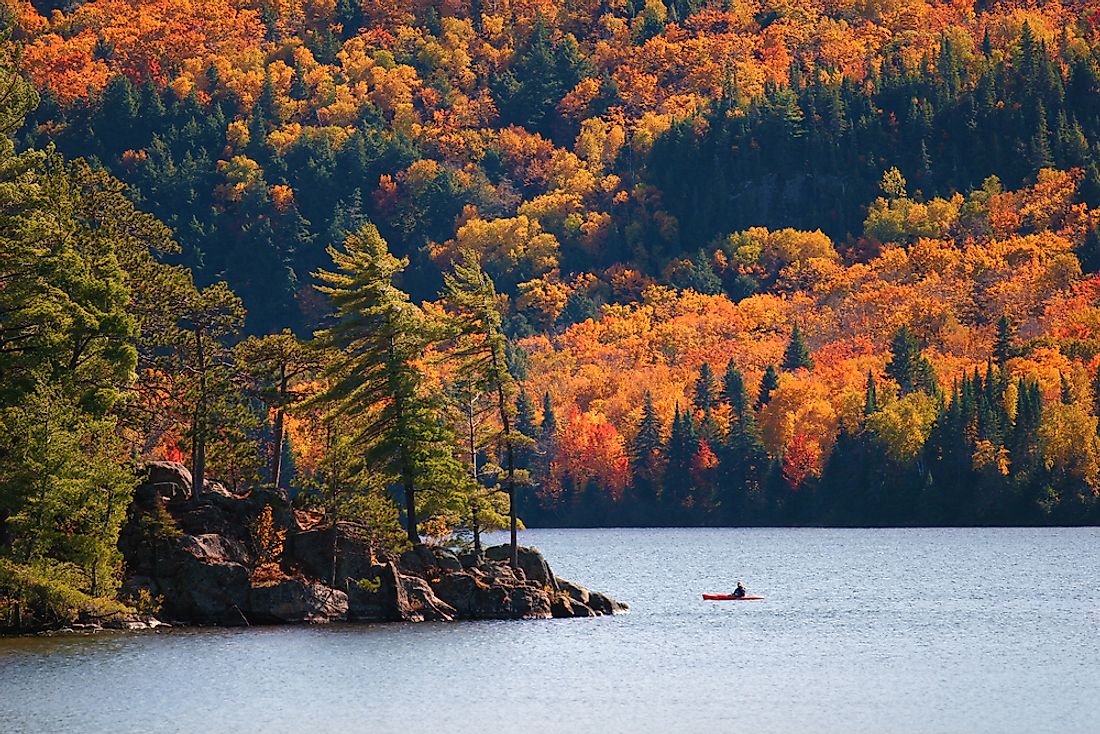Who are the Algonquin People?

The Algonquin People: An Overview
The Algonquin people are indigenous to pats of North America. Today, those identifying as Algonquin number at around 16,900, the majority of whom live on reservations in the province of Quebec in Canada. A smaller population lives on a reservation in Ontario. Traditionally, these individuals speak the Algonquin language, which is closely related to the Ojibwe language and belongs to the Algonquian language family. The oral stories of the Algonquin people suggest they migrated to the Quebec and Ottawa area from the Atlantic coastline thousands of years ago. Today, the Algonquin work with the government of Canada in an attempt to conserve their culture and heritage.
History Of The Algonquin
Algonquins lived throughout this region of Canada for thousands of years before the first contact with Europeans was made in 1603. By 1610, some indigenous Algonquin peoples helped the French settlers make their way inland on their quest for animal furs. During this time, the Algonquin were at war with the Iroquois, who were allied with the British, and requested help from the French in order to continue assisting them with the fur trade. This alliance resulted in ongoing attacks among the Iroquois, the French, and the Algonquin.
Between 1755 and 1763, the opposing sides fought in the Seven Years War, which ended with Great Britain gaining control of Canada. After this, the Algonquin people formed an alliance with the British, even fighting on their side during the American Revolutionary War and the War of 1812. Despite this, the British began selling off historically Algonquin territory. This loss of land continued throughout the first half of the 19th century in response to the growing lumber industry. In 1850, the Canadian government established 9 Algonquin native reservations in Quebec province and in 1873, protected an area of land in Ontario province. Unfortunately, these reservations are only a small percentage of what was once owned by the Algonquin people.
The Algonquin People Today
Today, the Algonquin continue to inhabit the reservations in Canada, which are concentrated around the Ottawa river and the waterways that feed into it. Sixteen Algonquin Negotiation Representatives represent the interests of the 10 Algonquin reservations and their communities. These individuals are elected by members of the Algonquin bands to serve for a 3-year term. The 10 Algonquin populations are currently working together, and have been since 2004, to resolve a land claim filed with the government of Canada. This claim, originally filed in 1983, involves an area of 9 million acres around the Ottawa and Mattawa river watersheds in the province of Ontario. This area has a population of around 1.2 million and the Algonquin communities claims that the title to this land was never handed over to the government.
This community has been in a number of disputes with both the government of Canada and private interests over the past several decades. One of the biggest successes occurred in 1981 when the Algonquin people worked together to stop the government from allowing commercial harvesting of wild rice, a traditional source of food for the Algonquin. More recently, in 2000, Algonquin bands prevented the government of Canada from turning an abandoned iron ore mine into a landfill.







